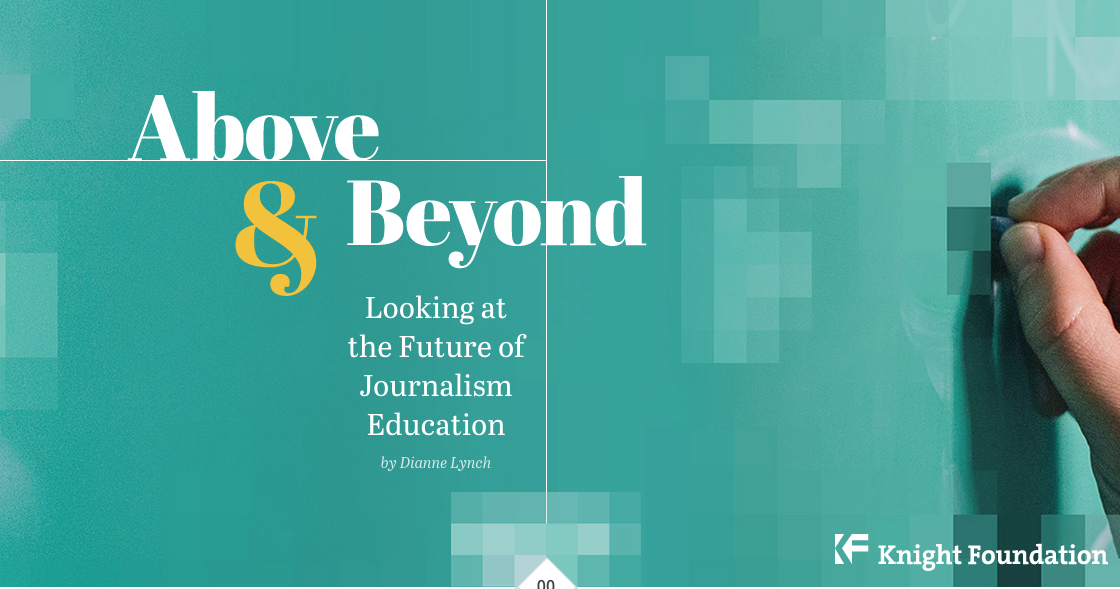
Journalism education should go ‘Above and Beyond’
Journalism educator and Stephens College President Dianne Lynch spent the last 10 months talking with journalists, students, scholars and professors about the future of journalism education.
RELATED LINKS “Report: Above & Beyond: Looking at the Future of Journalism Education” by Dianne Lynch, 02/19/15
“Universities need to shed some of their most basic approaches to teach journalism successfully, Knight Foundation report says” – press release, 02/19/15
The result is “Above and Beyond: Looking at the Future of Journalism Education,” a report released today by Knight Foundation that chronicles the debate over preparing journalism students for a media future no one can predict. I like its two main recommendations: for a new kind of digital-first form of immersive, interdisciplinary journalism education, and for a new accreditation system geared to educational outcomes.
I also like the way Dianne did the report. Before coming to any conclusions, she offered every member of the two primary organizations of journalism educators a chance to weigh in on their view of the future. “Above and Beyond” contains some two dozen transcripts of her interviews. She’s talked with an interesting array of people: from a recent graduate to the executive editor of The Washington Post, from Google staffer to Ivy League dean. Their opinions differ, but themes emerge.
The digital transformation of media has upended both journalism and journalism education. While traditional news media were slow to “get” the interactivity of the Internet, educators have as a rule been even slower. In my digital book, “Searchlights and Sunglasses,” and talks at the Reynolds Journalism Institute at the University of Missouri and elsewhere, I’ve called for the teaching hospital model of journalism education and better ways of tracking change.
Knight Foundation always has seen journalism education as essential, even before these urgent days of digital disruption. The foundation has invested more than $220 million in journalism and First Amendment education at more than 100 universities during the past 25 years. It has endowed two dozen Knight Chairs and major fellowship programs.
For a decade, the foundation has partnered with the Carnegie Corp. of New York to help a dozen leading universities through the reform-oriented Carnegie-Knight Initiative on the Future of Journalism Education. Still more are receiving grants through the Challenge Fund for Innovation in Journalism Education, a five-foundation partnership with the Online News Association. We helped PBS MediaShift launch EducationShift to help move journalism education forward.
Dianne plans to be in New York Thursday to discuss her report with the Carnegie-Knight deans. She’s set to be in Tampa Friday to discuss it with members of the Association of Schools of Journalism and Mass Communications. Take a look at it and see if you can tell why I like the recommendations. I hope the report helps spark not just conversation but action. Journalism education really does need to go “Above and Beyond.”
Eric Newton is senior adviser to the president at Knight Foundation and the author of “Searchlights and Sunglasses: Field Notes From the Digital Age of Journalism.”
Recent Content
-
Journalismarticle ·
-
Journalismarticle ·
-
Journalismarticle ·


